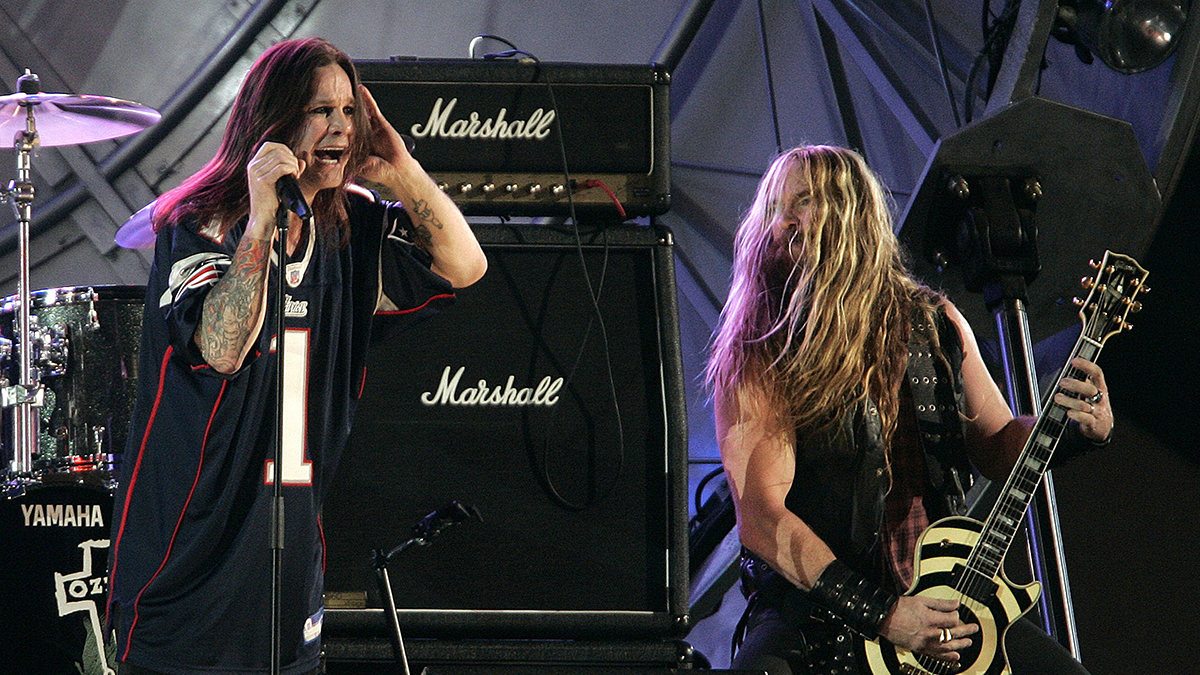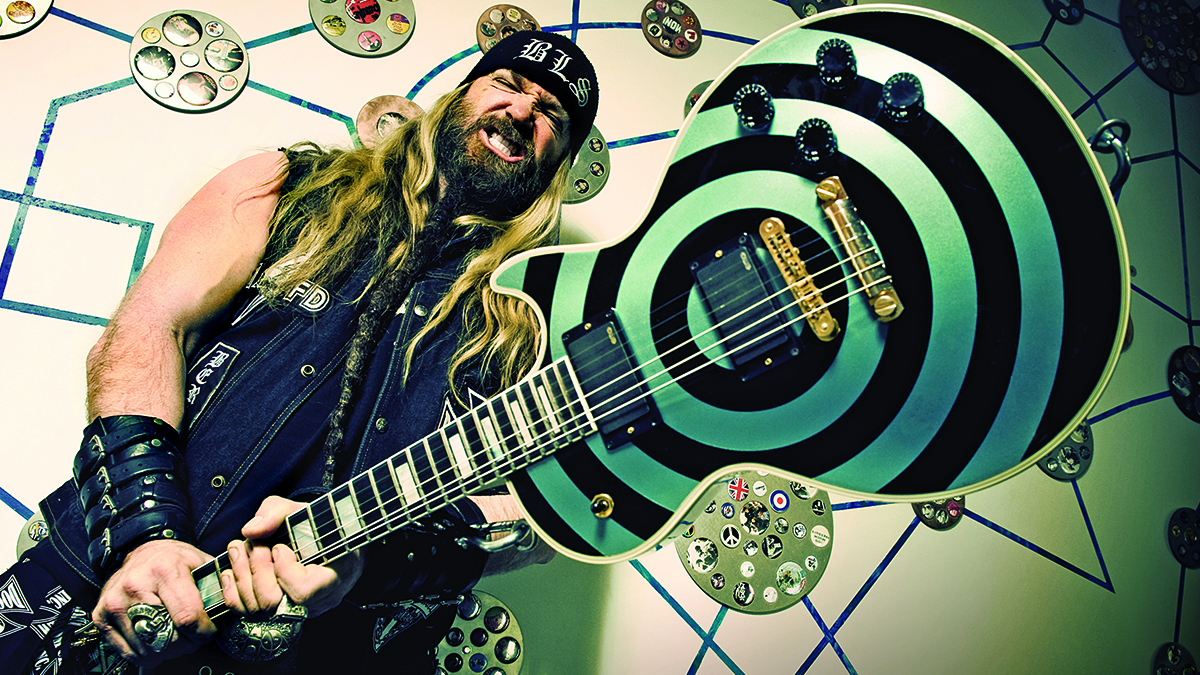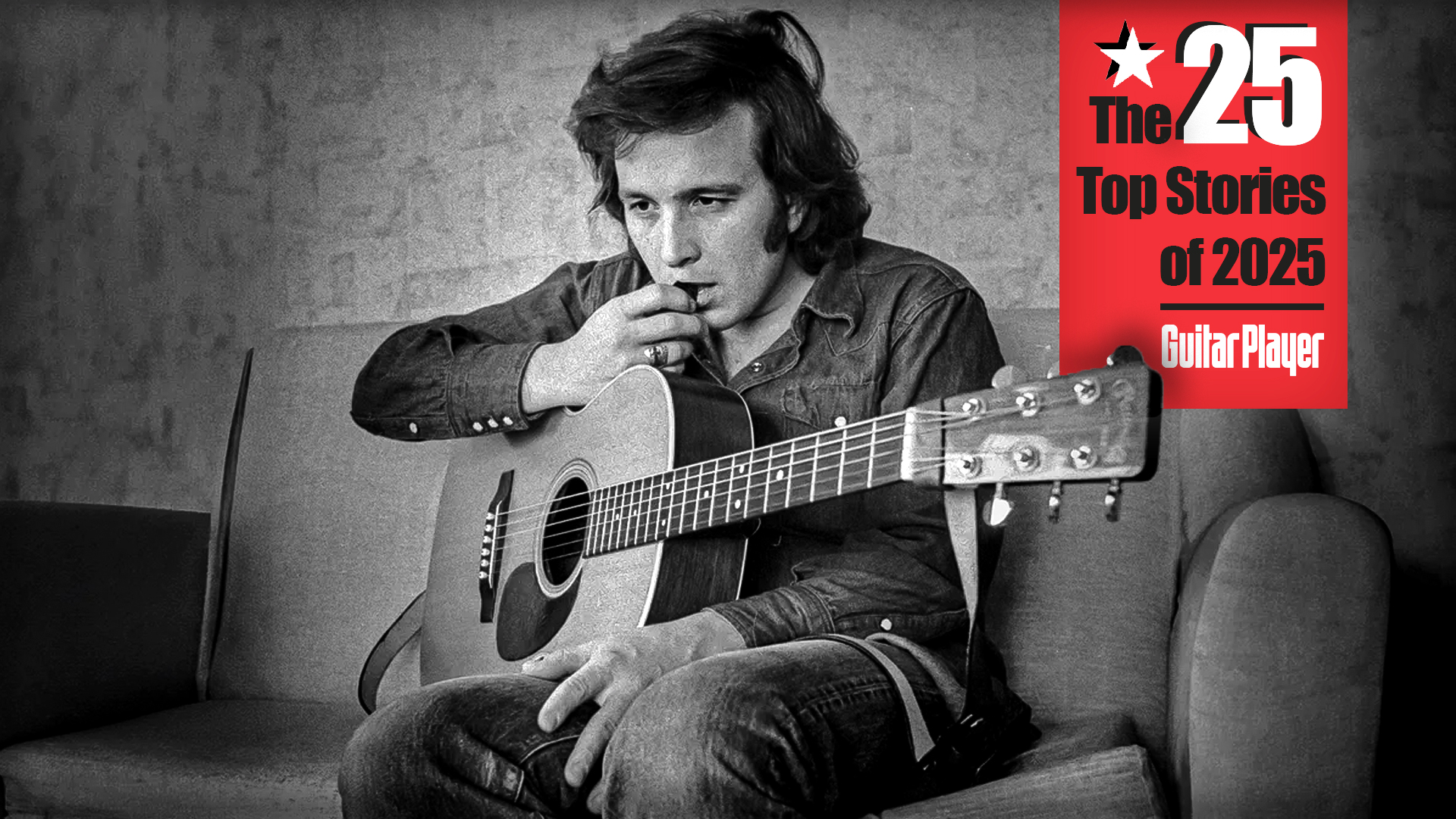“I could be playing 'Mary Had A Little Lamb' with a wah-wah, and he'd be going, ‘Hendrix, Hendrix, Hendrix.” Zakk Wylde says Ozzy Osbourne had some strict rules when it came to the guitarist's gear
After joining the band in 1987, the guitarist quickly learned what was off the table when it came to his tone

When a fresh-faced Zakk Wylde joined Ozzy Osbourne’s band in 1987, he landed a coveted role that guitarists of far greater stature had vied for. Among them was neoclassical shredder Chris Impellitteri, a fast-rising talent who Ozzy is said to have “loved”. In the end, as when he hired Randy Rhoads, Ozzy took a gamble by putting his faith in a guitarist few had heard of.
Of course, everyone knows how the story ends. Still a part of Ozzy’s outfit today — save for the odd parting of ways over the years, which saw Testament’s Alex Skolnick join for one night only and Gus G replace him for one record — he stands as the most loyal six-string servant of the Prince of Darkness.
Perhaps his ability to bend to the singer’s strict rules about guitar playing and gear is to thank for that. That seems to the case based on comments from the guitarist's early days with Ozzy that recently resurfaced.
Wylde was just 20 years old when he joined the band, which featured new keyboardist John Sinclair and original bass player Bob Daisley, who was returning to the fold for the first time since 1983's Bark at the Moon. Their first release with Ozzy, No Rest for the Wicked, came out the following year. The pace was fast, and Wylde had to adapt quickly to the pressure cooker environment of life in one of heavy metal’s biggest acts.
“I wanted to play more slide guitar and use the wah pedal more on No Rest for the Wicked,” the guitarist told Guitar World back in ‘89. “But the minute Ozzy hears a wah-wah, he immediately thinks of Jimi Hendrix.
“I could be playing 'Mary Had A Little Lamb' with a wah-wah, and he'd be going, ‘Hendrix, Hendrix, Hendrix."
And the rules stretched far beyond his anti-wah stance.
All the latest guitar news, interviews, lessons, reviews, deals and more, direct to your inbox!
Wylde’s custom-painted Bulls-eye Les Paul quickly became part of his signature look — and it was a subtle nod and variance to Randy Rhoads’ preferred polka-dot styling. Ozzy was fine with it — but there were caveats.
“I only used the guitar's back pickup on the album,” Zakk revealed. “Ozzy hates the sound of the front pickup. He calls it the ‘cow tone.’”
Those requests may seem harsh to seasoned players, but Wylde was happy to bow to his boss's demands.
“The thing is, Ozzy’s been rocking out since before I was born,” he said. Indeed; Wylde was just three years old when Black Sabbath released its change-making debut album in 1970. “I had to respect his opinion as to what would work in the studio.”

Speaking recently to Guitar Player, Wylde has hailed Ozzy’s ability to see greatness in even the most primitive ideas.
“The funny thing with Ozz is that, when I played things like, 'I Don’t Wanna Change the World,' I was just messing around having a joke, riffing, singing crazy shit. But Ozzy heard something that clicked for him. He turned that into a Grammy-winning song.”
Anecdotes like that show that Wylde was shrewd to lean into Ozzy’s expertise. After all, No Rest for the Wicked was the singer’s 13th album release; it was Wylde’s first.
He’s also admitted to stealing ideas from Jimi Hendrix and his Ozzy predecessors – Randy Rhoads, and Jake E. Lee, to help pen his first riff for the band.
A freelance writer with a penchant for music that gets weird, Phil is a regular contributor to Prog, Guitar World, and Total Guitar magazines and is especially keen on shining a light on unknown artists. Outside of the journalism realm, you can find him writing angular riffs in progressive metal band, Prognosis, in which he slings an 8-string Strandberg Boden Original, churning that low string through a variety of tunings. He's also a published author and is currently penning his debut novel which chucks fantasy, mythology and humanity into a great big melting pot.

